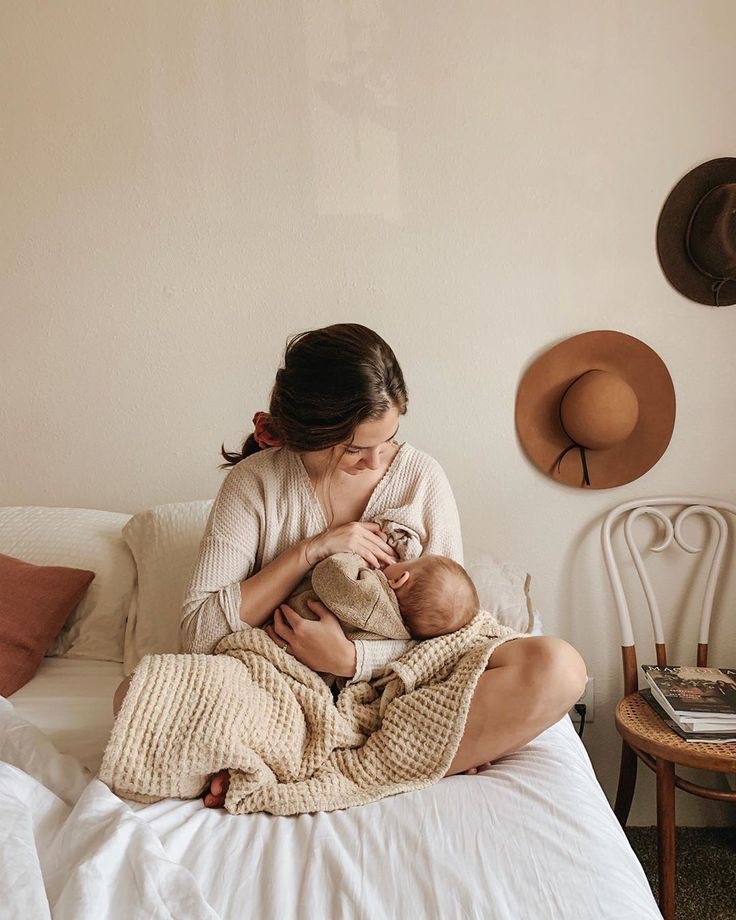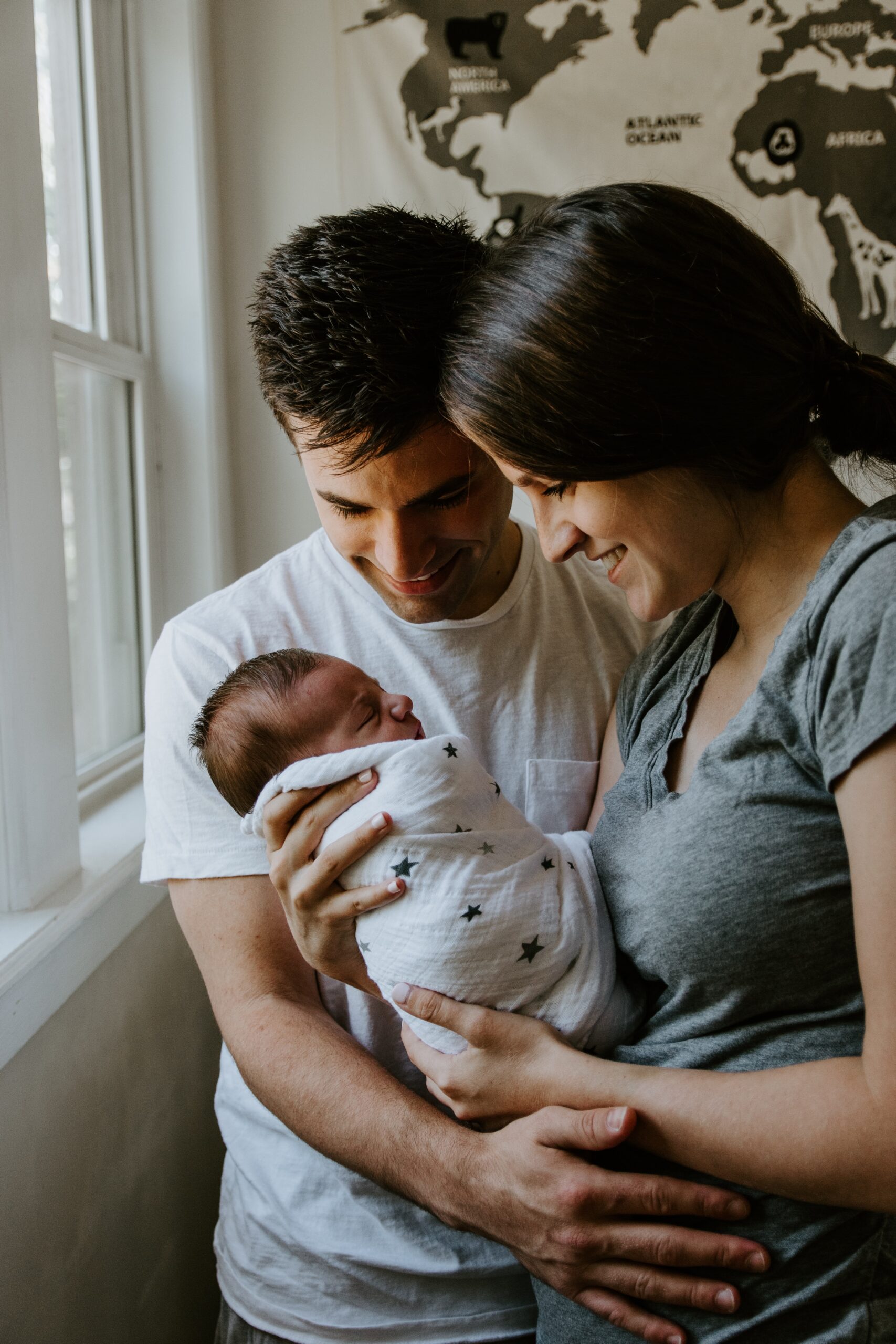How To Help Your New Baby Sleep
This article focuses on newborn sleep from Day 1 to 6 Weeks. If your baby is beyond this stage, check out my article on helping older babies sleep.
Note: I fully support safe co-sleeping practices, and my suggestions reflect that mindset. I safely co-slept with all of my children, and I encourage parents to follow their own instincts. If you’re not a fan of co-sleeping, you’re still welcome to read on—perhaps you’ll pick up some tips, or maybe I’ll even convince you to give it a try! But if you’re firmly against it, I might not be the best guide for your journey.

Let’s Get Into It!
One of the most common questions new parents hear is: “So, how’s your baby sleeping at night?” Well-meaning friends, family, and even strangers love to ask this. Babies who sleep well are labeled “good babies,” while those who wake frequently are often called “difficult” or “bad.” But where did this idea come from? Let’s set the record straight: a newborn’s sleep patterns are no reflection of their worth. All babies, regardless of their sleep habits, are inherently good.
This concept seems obvious, but many new parents are familiar with the pressure of the “good sleeper/bad sleeper” mentality. It’s important to recognize that newborns are tiny, helpless beings. They’ve just spent months in the womb, an optimal environment with perfect temperature, constant nourishment, and no need to do much of anything, even breathe! That being said, sleep is an essential part of life, so let’s discuss how you can help your new baby sleep better!
Suddenly, one day, they receive the rudest eviction notice, and they’re thrust into a world of bright lights, strange sounds, and new sensations. Along their way, some babies experience birth trauma, and even in “non-traumatic” births, all birth in and of itself is an intense experience. They now have to breathe on their own, experience hunger pains, wear clothes,(how annoying that must feel after being blissfully naked your whole life) regulate their body temperature, and deal with new discomforts like gas, spit-up and the occasional fist punch to their own face.
Considering all these changes, it’s no wonder that newborns struggle with sleep. And then people have the nerve to call them “bad babies” if they don’t sleep through the night! Being a newborn is tough work y’all !
Adjusting Expectations for Newborn Sleep
From birth to around 6 weeks old, you should not expect your baby to sleep through the night. In fact, newborns need to wake for feedings every 2-3 hours. Even if your baby could sleep through, you’d still need to wake them for feedings at least twice a night. So next time someone asks you if your baby is a “good sleeper” feel free to tell them, “You know what? He’s incredibly intelligent for his age! He wakes himself up every 2 hours knowing that’s precisely when he needs to eat. I don’t even have to wake him up. 🙂
All kidding aside, here are a few tips to help you survive those first weeks of interrupted sleep.

Manage Your Expectations
Accept that your baby will wake frequently to feed. Whether nursing or bottle-feeding, nighttime feedings are essential for the rapid amount of growing your baby is doing during this period. As disruptive as it can be, this phase won’t last forever, I promise!
- Create a Cozy Sleep Nest
Set up your sleep environment for comfort. Consider using low red lights which minimize disruption to your circadian rhythm and help your baby adjust to night and day.
- Prepare Your Changing Station
Refill your diaper and changing supplies before bedtime so you’re not fumbling for wipes or outfits in the middle of the night.
- Use Safe Sleep Devices
Whether you choose a bedside bassinet or a safe bed-sharing device like a DockATot, keeping your baby within arm’s reach can make nighttime wakings easier.
- Share Nightly Duties
Experiment to find what works best for your family. Some parents prefer to take turns—one partner handles diaper changes while the other feeds the baby. Others may opt to sleep in separate rooms and divide responsibilities if one parent has to be up early to go to work etc. There’s no “right” way—do what works for you.
Final Thoughts
I hope this gives you a new perspective on the whole “good sleeper vs. bad sleeper” mentality. Remember, newborns are adjusting to a brand new world, and their sleep patterns reflect this. By managing your expectations and creating a supportive sleep environment, you can better navigate the newborn phase.
For more tips on newborn sleep and other postpartum advice, be sure to explore my blog!

+ show questions
- Hide Comments
Ask The midwife